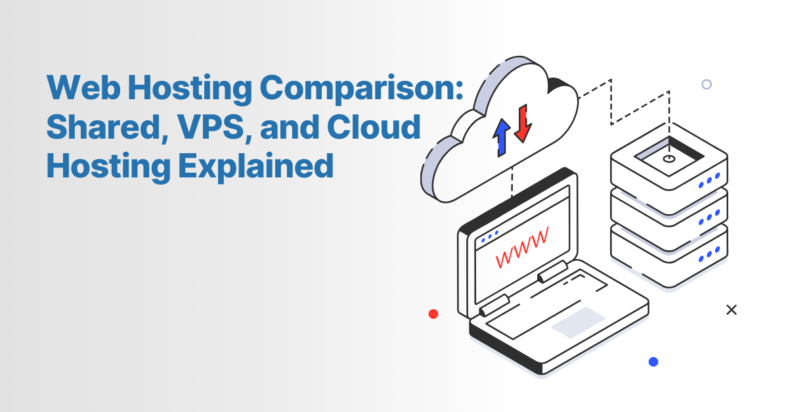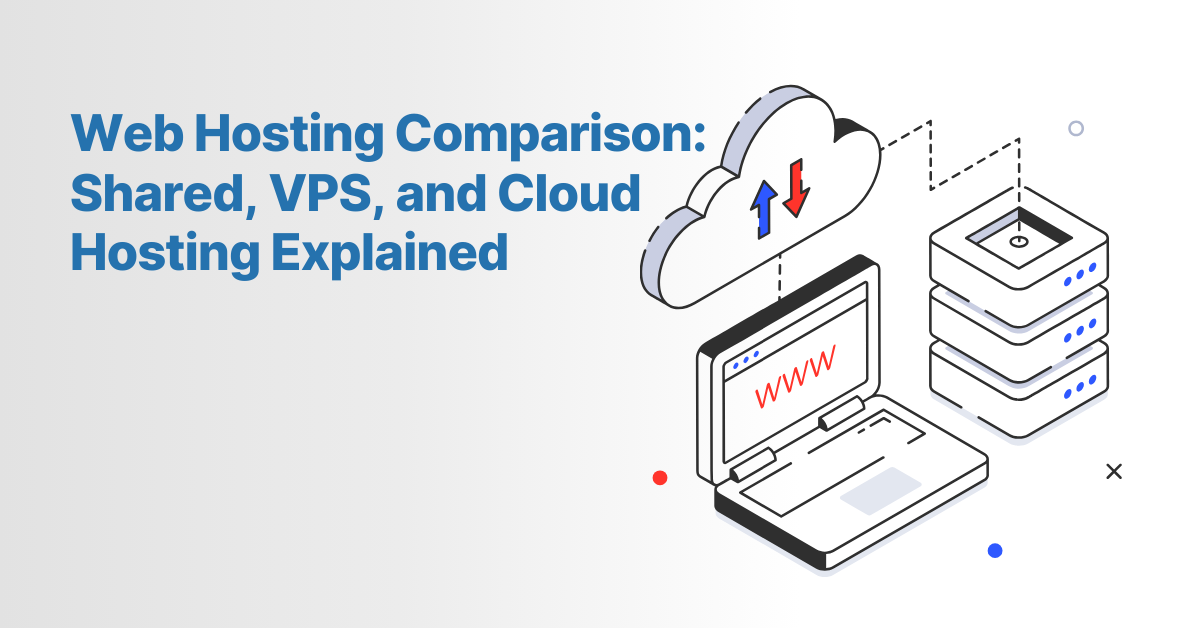Choosing the right web hosting is essential for the success of your website. With multiple hosting options available, understanding their differences can help you make an informed decision. This guide explains the key features, pros, and cons of Shared Hosting, VPS Hosting, and Cloud Hosting to help you choose the best option for your needs.
1. What is Shared Hosting?
Shared hosting is the most affordable and beginner-friendly hosting option. It involves multiple websites sharing the same server resources, making it an economical choice for small websites and blogs.
Pros:
- Cost-effective and easy to set up
- No technical expertise required
- Maintenance and security handled by the provider
Cons:
- Limited resources (CPU, RAM, bandwidth)
- Slower performance during high traffic periods
- Less control over server settings
Best For: Beginners, personal blogs, small websites with low traffic
2. What is VPS Hosting?
Virtual Private Server (VPS) hosting provides a middle-ground between shared and dedicated hosting. It partitions a single server into multiple virtual servers, giving users more dedicated resources.
Pros:
- More control and customization compared to shared hosting
- Better performance and scalability
- Improved security as resources are isolated
Cons:
- More expensive than shared hosting
- Requires some technical knowledge for management
- Still shares a physical server with other users
Best For: Medium-sized businesses, growing websites, developers needing flexibility
3. What is Cloud Hosting?
Cloud hosting distributes website data across multiple interconnected servers, providing scalability and redundancy. This makes it an ideal solution for websites with fluctuating traffic.
Pros:
- High scalability – easily upgrade or downgrade resources
- Excellent uptime and reliability
- Pay-as-you-go pricing models available
Cons:
- Can be more expensive than VPS or shared hosting
- Requires technical knowledge to manage advanced settings
- Data privacy concerns as hosting relies on multiple servers
Best For: High-traffic websites, eCommerce stores, enterprises needing scalability
4. Comparison Table: Shared vs. VPS vs. Cloud Hosting
| Feature | Shared Hosting | VPS Hosting | Cloud Hosting |
|---|---|---|---|
| Price | Low | Medium | Varies (Pay-as-you-go) |
| Performance | Basic | High | Very High |
| Scalability | Limited | Moderate | High |
| Security | Basic | Strong | Very Strong |
| Ease of Use | Beginner-friendly | Requires knowledge | Requires advanced management |
5. Which Hosting is Right for You?
- Choose Shared Hosting if you’re a beginner with a small blog or website.
- Choose VPS Hosting if you need better performance and more control.
- Choose Cloud Hosting if your website experiences fluctuating traffic or requires high reliability.



